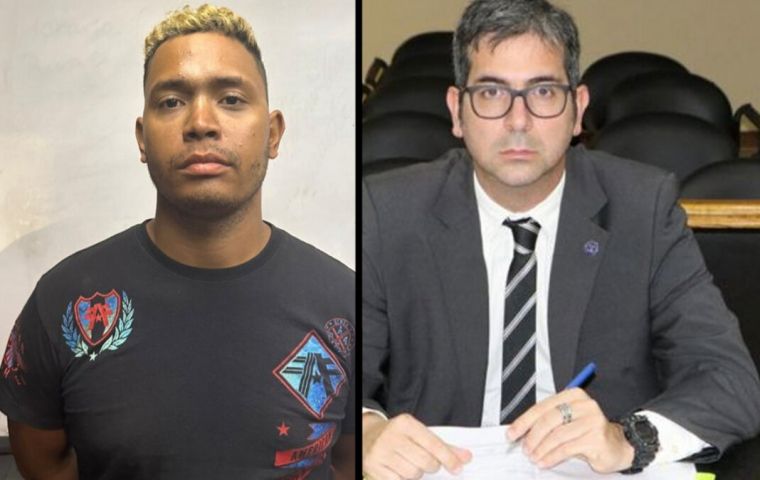
CARACAS, Dec 22 (NNN-MERCOPRESS) — Venezuelan authorities captured in Caracas a sixth suspect in the murder of Paraguayan anti-mafia prosecutor Marcelo Pecci in May, when he was spending his honeymoon on a beach in the Colombian Caribbean, Colombian police reported on Wednesday.
His crime has been linked to several judiciary processes, such as Uruguayan drug trafficker Sebastian Marset, who allegedly ordered the death of the prosecutor.
Venezuelan citizen Gabriel Carlos Luis Salinas Mendoza is being held in Caracas, accused of driving the jet ski on which the gunman who killed the 45-year-old prosecutor was riding, according to a bulletin.
Under investigation for the crimes of aggravated homicide and arms and ammunition trafficking, Salinas is the sixth person arrested for the murder of Pecci, who was killed in front of his pregnant wife on May 10 on the island of Baru, near Cartagena (north).
Four of those arrested confessed their responsibility and were sentenced to 23 years in prison each.
“This Venezuelan citizen is at the disposal of the Venezuelan intelligence service, deprived of his freedom” while awaiting “coordination” between the prosecutors of both countries to “guarantee” that he “serves a sentence”, said at a press conference the director of the Colombian police, General Henry Armando Sanabria.
The chief of the entity indicated that Venezuela “prevents the extradition of its nationals”, so Salinas will be prosecuted in his country.
Authorities have not determined the intellectual authors of the murder of Pecci, who investigated drug trafficking and organized crime cases.
The United States has offered a US$5 million reward for information on those responsible.
Throughout the international investigation, criminal organizations such as Brazil’s PCC (Primeiro Comando da Capital), Venezuela’s Tren de Aragua and Uruguay’s Clan Insfrán have emerged as suspects.
Pecci, who specializes in organized crime, drug trafficking, money laundering and the financing of terrorism, had investigated Brazilian gangs, as well as Lebanese money launderers from the Triple Border of Paraguay, Brazil and Argentina. — NNN-MERCOPRESS






